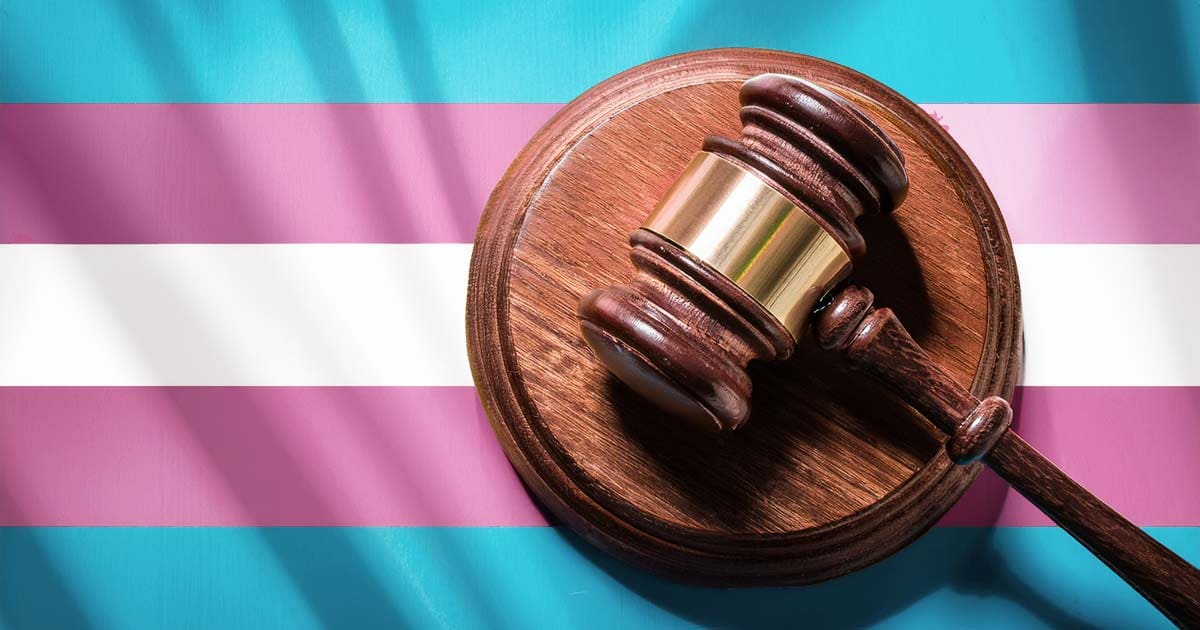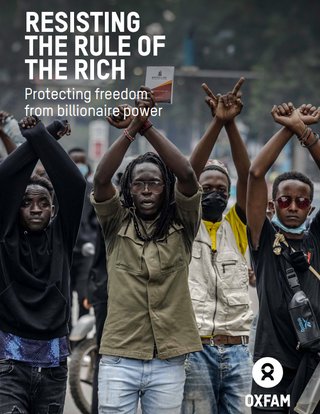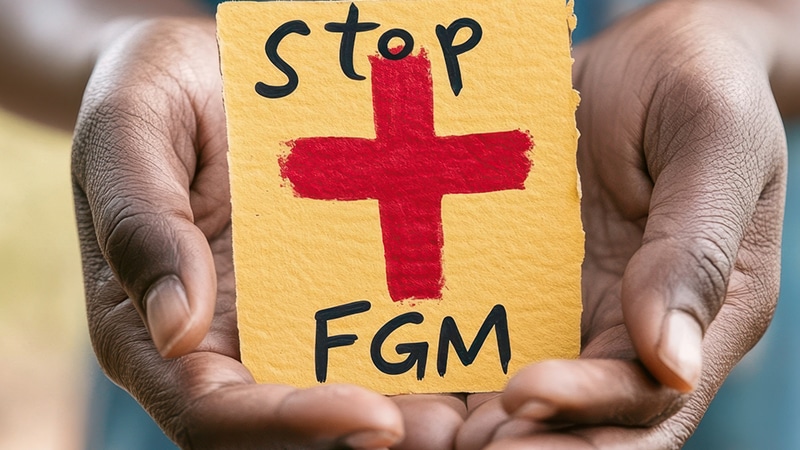US Supreme Court Allows Trump’s Anti-Trans Passport Policy to Continue – MambaOnline

Report on United States Supreme Court Ruling on Transgender Passport Policy and its Implications for Sustainable Development Goals
1.0 Executive Summary
This report details a recent United States Supreme Court decision permitting the enforcement of a federal policy that restricts gender markers on passports to male or female based on sex assigned at birth. The ruling suspends a lower court’s injunction against the policy, which was implemented following a January 2025 executive order. This development has significant implications for human rights and directly challenges the principles of several Sustainable Development Goals (SDGs), particularly SDG 5 (Gender Equality), SDG 10 (Reduced Inequalities), and SDG 16 (Peace, Justice and Strong Institutions).
2.0 Background of the Policy and Legal Challenge
2.1 Executive Order and Policy Implementation
In January 2025, an executive order was signed defining gender within all government policies as strictly male or female, based exclusively on biological sex at birth. This order explicitly excludes the recognition of gender identity. Consequently, the U.S. State Department ceased issuing passports that reflect the gender identity of transgender, non-binary, and intersex individuals, reverting to listing only the sex assigned at birth.
2.2 Initial Legal Proceedings
The American Civil Liberties Union (ACLU) initiated a legal challenge against the policy on behalf of affected individuals. The primary arguments against the policy were that it is discriminatory and endangers transgender people by forcing them to carry identification that does not align with their gender identity, increasing their vulnerability to harassment and violence. A federal court initially granted a preliminary injunction, which temporarily halted the enforcement of the policy pending a final judicial review.
3.0 Supreme Court Intervention
3.1 Suspension of the Injunction
The Supreme Court granted the administration’s request to suspend the preliminary injunction. This decision allows the government to enforce the restrictive passport policy while the legal case proceeds through the court system. Jon Davidson, Senior Counsel for the ACLU’s LGBTQ & HIV Project, stated that the ruling represents a significant setback for the rights of transgender individuals.
3.2 Dissenting Opinion
A dissenting opinion was issued by Justice Ketanji Brown Jackson, joined by Justices Sonia Sotomayor and Elena Kagan. Justice Jackson argued that the court’s decision permits immediate harm without sufficient justification and constitutes an “abdication of the Court’s duty.”
Analysis of Alignment with Sustainable Development Goals (SDGs)
SDG 5: Gender Equality
The policy directly contravenes the core principles of SDG 5, which aims to achieve gender equality and empower all women and girls. By enforcing a rigid, binary definition of gender, the policy undermines progress on several targets:
- Target 5.1: The policy constitutes a form of discrimination against individuals based on gender identity, conflicting with the goal to end all forms of discrimination.
- Broader Principles: It denies the identity and autonomy of transgender, non-binary, and intersex people, reinforcing harmful gender stereotypes and hindering the achievement of full gender equality.
SDG 10: Reduced Inequalities
The court’s ruling exacerbates inequalities, in direct opposition to the objectives of SDG 10.
- Target 10.2: The policy actively works against the social inclusion of a marginalized group by denying legal recognition of their gender identity, which is fundamental to their participation in society.
- Target 10.3: It represents a discriminatory law and practice that denies equal opportunity and creates inequalities of outcome, particularly concerning safety, mobility, and access to services.
SDG 16: Peace, Justice and Strong Institutions
The legal battle and the Supreme Court’s decision raise critical questions regarding the strength and impartiality of institutions, a cornerstone of SDG 16.
- Target 16.3: The ruling is viewed by civil rights organizations as a barrier to equal access to justice for transgender individuals.
- Target 16.B: The decision allows for the enforcement of a discriminatory policy, undermining the international commitment to promote and enforce non-discriminatory laws for sustainable development.
- Institutional Accountability: The ACLU has pledged to continue its legal challenge, highlighting the role of civil society in holding judicial institutions accountable for protecting fundamental rights.
Analysis of Sustainable Development Goals in the Article
1. Which SDGs are addressed or connected to the issues highlighted in the article?
-
SDG 5: Gender Equality
The article discusses a government policy that defines gender as strictly male or female based on biological sex, excluding gender identity. This is a direct challenge to gender equality as it enforces a discriminatory practice against transgender, non-binary, and intersex individuals, denying them recognition and rights based on their gender identity.
-
SDG 10: Reduced Inequalities
The core issue is a policy that creates and exacerbates inequality. By forcing transgender people to carry passports that do not align with their gender identity, the policy singles out a specific group, denies them equal treatment, and, as the ACLU argues, increases their risk of harassment and violence, thereby reducing their inclusion and safety in society.
-
SDG 16: Peace, Justice and Strong Institutions
The article revolves around a legal and institutional conflict. It details a discriminatory government policy, a legal challenge by the ACLU, and a Supreme Court ruling. This connects to the SDG’s focus on access to justice for all, the promotion of non-discriminatory laws, and the accountability of institutions. The court’s decision to allow the policy is presented as a setback for justice and a failure of the institution to protect constitutional rights.
2. What specific targets under those SDGs can be identified based on the article’s content?
-
Under SDG 5: Gender Equality
- Target 5.1: “End all forms of discrimination against all women and girls everywhere.” While the target text specifies “women and girls,” its principle of ending gender-based discrimination is directly relevant. The passport policy is a form of discrimination based on gender identity, which the article explicitly labels as “discriminatory” and an “unlawful attempt to dehumanise, humiliate, and endanger” the affected individuals.
-
Under SDG 10: Reduced Inequalities
- Target 10.2: “By 2030, empower and promote the social, economic and political inclusion of all, irrespective of age, sex, disability, race, ethnicity, origin, religion or economic or other status.” The policy actively works against the inclusion of transgender, non-binary, and intersex people (an “other status”). By denying them accurate identity documents, it creates barriers to their social inclusion and safety.
- Target 10.3: “Ensure equal opportunity and reduce inequalities of outcome, including by eliminating discriminatory laws, policies and practices…” The article is centered on the legal challenge against a “discriminatory passport policy.” The ACLU’s efforts are aimed at eliminating this policy, which directly aligns with the objective of this target.
-
Under SDG 16: Peace, Justice and Strong Institutions
- Target 16.9: “By 2030, provide legal identity for all, including birth registration.” A passport is a fundamental form of legal identity. The policy prevents a group of individuals from obtaining a legal identity document that accurately reflects who they are, which is a direct contradiction of this target’s goal.
- Target 16.b: “Promote and enforce non-discriminatory laws and policies for sustainable development.” The article highlights the enforcement of a discriminatory policy by the Trump administration and the Supreme Court’s decision to allow it. The ACLU’s lawsuit represents the effort to promote and enforce non-discriminatory principles, which is the core of this target.
3. Are there any indicators mentioned or implied in the article that can be used to measure progress towards the identified targets?
-
For Targets 5.1, 10.3, and 16.b:
- Indicator (Implied): The existence of legal frameworks and policies that discriminate on the basis of gender identity. The article’s entire focus on the “discriminatory passport policy” serves as a direct, negative indicator. Overturning this policy would be a positive measure of progress.
- Indicator (Implied): Reports of harassment, discrimination, and violence against individuals due to non-conforming identity documents. The ACLU’s argument that the policy “increases the risk of harassment, discrimination, and violence” implies that the frequency of such incidents is a key indicator of the policy’s negative impact.
-
For Target 16.9:
- Indicator (Implied): The ability of individuals to obtain official identity documents (like passports) that accurately reflect their gender identity. The State Department’s action to stop “issuing passports reflecting the gender identity of transgender people” is a clear, measurable indicator of regression from this target. Progress would be measured by the reinstatement of a policy allowing for accurate gender markers.
4. Table of SDGs, Targets, and Indicators
| SDGs | Targets | Indicators (Identified in the Article) |
|---|---|---|
| SDG 5: Gender Equality | 5.1: End all forms of discrimination against all women and girls everywhere. | Existence of a government passport policy that discriminates based on gender identity. |
| SDG 10: Reduced Inequalities | 10.2: Empower and promote the social, economic and political inclusion of all… irrespective of… other status. | Barriers to social inclusion for transgender, non-binary, and intersex people due to inaccurate legal documents. |
| 10.3: Ensure equal opportunity… by eliminating discriminatory laws, policies and practices. | The legal challenge against the “discriminatory passport policy” and the Supreme Court’s ruling on its enforcement. | |
| SDG 16: Peace, Justice and Strong Institutions | 16.9: Provide legal identity for all. | The State Department’s refusal to issue passports that accurately reflect the gender identity of transgender individuals. |
| 16.b: Promote and enforce non-discriminatory laws and policies. | The enforcement of the anti-trans passport policy, as allowed by the Supreme Court, serves as a negative indicator for this target. |
Source: mambaonline.com
What is Your Reaction?
 Like
0
Like
0
 Dislike
0
Dislike
0
 Love
0
Love
0
 Funny
0
Funny
0
 Angry
0
Angry
0
 Sad
0
Sad
0
 Wow
0
Wow
0














































































